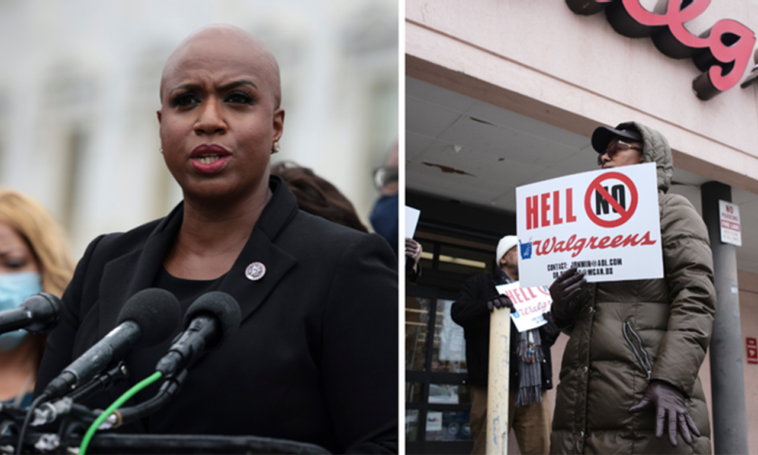“The closure of a Walgreens store within any neighborhood reverberates far beyond the simple shutting of its doors; it disrupts the very essence of the community it once served.” Pressley argued.
Representative Ayanna Pressley poignantly highlighted the dire consequences: essential items such as baby formula, diapers, asthma inhalers, and life-saving medications vanish alongside the disappearance of employment opportunities.
She further emphasized that these closures are not mere administrative decisions but rather acts of racial and economic discrimination with life-threatening implications.
In a recent development, Representative Pressley, alongside Senator Ed Markey and Senator Elizabeth Warren, demanded accountability from Walgreens CEO Tim Wentworth.
They raised concerns regarding the sudden closure of the store and its ramifications, particularly for vulnerable seniors in low-income neighborhoods. The trio even joined locals in protest, stressing the urgency of the situation. The closure not only deprives residents of essential healthcare services but also widens existing disparities in healthcare access.
Pressley did not hold back in her criticism of Walgreens, accusing the pharmaceutical giant of hypocrisy in its purported commitment to health equity. She questioned the absence of community engagement, insufficient notice to customers, and the lack of transition resources to mitigate gaps in healthcare access.
Her message was clear: superficial commitments to health equity on a website are inadequate; concrete actions are imperative. Walgreens, as a multi-billion-dollar corporation, must prioritize its responsibility to marginalized communities and cease divesting from Black and brown neighborhoods.
In response, Walgreens defended its decision to close the Roxbury store, citing various factors such as operating costs, low prescription volume, and reimbursement rates. While the company acknowledged the concerns raised by the community, it underscored the challenging business environment that necessitated such decisions.
Despite the closure, Walgreens pledged to transfer patient files and prescriptions to the nearest store a mile away, offering free same-day delivery for 90 days to alleviate inconvenience.
The closure of the Roxbury store is not an isolated incident. In 2022, Walgreens faced allegations of racism from Boston officials after closing three other stores in predominantly Black and Hispanic neighborhoods.
The company’s explanation, citing factors like market dynamics and changes in buying habits, did little to assuage concerns about systemic discrimination in its decision-making processes. The repeated closures in marginalized communities underscore a troubling pattern that demands scrutiny and accountability.
Beyond the immediate impact on access to healthcare and employment, the closure of Walgreens stores highlights broader systemic issues of racial and economic inequality. These closures not only exacerbate existing disparities but also perpetuate cycles of poverty and marginalization in underserved communities.
As policymakers and community leaders continue to advocate for equitable access to healthcare and economic opportunities, the case of Walgreens serves as a poignant reminder of the ongoing struggle for justice and equality. It calls for concerted efforts to address systemic inequities and ensure that no community is left behind in the pursuit of health and prosperity.




One Comment
Leave a ReplyOne Ping
Pingback:Ayanna Pressley Call for Removal of Lawmaker Over Controversial Comment on White Men - Hard Knock News
Join the Community and Be a Part of the Conversation
You must be logged in or registered to post a comment.